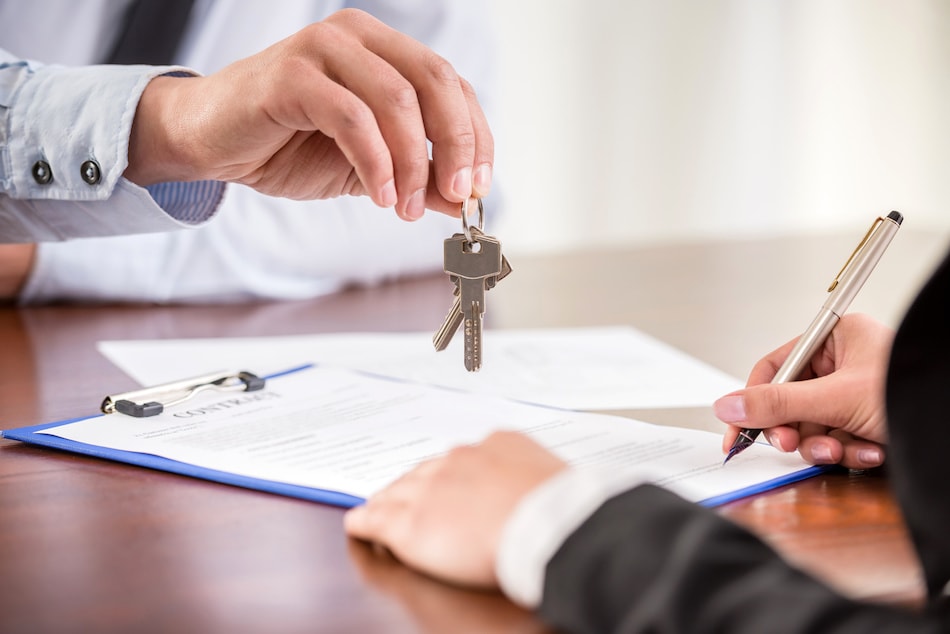 Selling your home means getting organized and making sure you have the proper paperwork - before the sale. Whether you are a first-time home seller or you are a veteran at doing so, having ready access to the necessary documents will make the home selling process much smoother.
Selling your home means getting organized and making sure you have the proper paperwork - before the sale. Whether you are a first-time home seller or you are a veteran at doing so, having ready access to the necessary documents will make the home selling process much smoother.
Today, many of these documents may be available in digital form. In that case, make sure to keep a record of the electronic location of each so you can access them quickly. One option is to go ahead and print them and maintain a file with all of the printed docs for easy access.
Since many of the documents listed below contain sensitive financial and personal information, they should be stored in a secure location such as a locked cabinet or within an encrypted server (if still in digital form). Whatever form you decide to store the necessary paperwork in, keep these important documents on hand.
If you are unsure if you should include any additional documents related to your home, ask your real estate agent! They will be able to tell you whether or not it will be beneficial or needed in your home's sale.
The Purchase Contract
This is the original contract of sale from when you purchased the home. This should include the purchase price you paid.
All Tax Records
These tax records could vary from location to location but might include property taxes, school tax or any tax information that a buyer would need to know about.
Any Professional Home Inspections
Any records of prior home inspections that have been performed by professional home inspectors, as well as their findings, may need to be made available to the buyer or your real estate professional.
Your Homeowner's Insurance
The documentation detailing your homeowner's insurance might be of interest to a buyer.
Mortgage Documents
Your real estate agent may need to review your original and current mortgage documents to assist them with the calculation of the net cash proceeds after your home sale.
Title and Ownership Documents
The title and other documents that establish your ownership of the property might not be something that you keep on the premises. They might be kept in a safe deposit box, which would involve making an appointment with your financing institution. In this category, include documents such as a certificate of occupancy, the certificate of compliance with local building codes, a survey of the property, and/or a certificate of compliance with zoning codes and other related items.
Any Home Appraisals
Include and make available the original professional appraisal that was completed when you purchased the home. In addition, make sure the you also include any changes that were documented since that appraisal was completed, such as new additions or major improvements to the home.
Records of Improvements
If you've been in your home for any length of time, it's likely that you have made improvement to the home. It is important to keep all records and receipts pertaining to these improvements. Not only will they show the buyer how you've improved the home, they may also help justify the asking price more accurately.
Appliance Information
If you are conveying any of your appliances with the sale of your home, the new owners may need both the manuals and warranty information. While most people think about dishwashers and refrigerators when they are conveying appliances, don't forget about water softeners, generators and well pumps, if applicable.
Homeowner's Association Documents
If your home is located in a neighborhood with a homeowner's association, the buyer may need or request the documents related to the HOA Bylaws and regulations.
Records of Repairs and Maintenance
Records of maintaining and repairing your home are valuable pieces of information for a buyer. These records help paint a picture of ongoing care to keep stable the home's integrity.
Other Professionals Paperwork
Over the course of the sale of your home, you could potentially be working with a half dozen or more professionals. These could include a real estate agent, accountant, stager, lawyer, movers, auction houses and contractors such as electricians, roofers, plumbers and more. Be sure and keep all invoices, contracts and warranties from all professionals having to do with your home sale.
Sale Prices of Comparable Homes
Knowing the price point of the market for your type of home is important in determining a realistic sale price. While your real estate agent might provide this for you, it may also be a good idea to pull together your own reference list.
While the above list of documents is extensive, it's designed to give you a starting point. The exact paperwork you need could vary depending on the state and locality that you reside in or that the property is located in. Your real estate agent will help you sort out what is needed and what is optional. However, having all of the paperwork ready and handy will save a great deal of time and headaches in the future.
#hw



